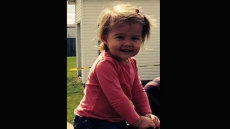VANCOUVER - A coroner's inquest starting Monday into the death of a Mexican national who hanged herself inside a Vancouver airport holding cell offers a rare chance to examine the secretive deportation process encountered by many migrants, says an advocacy group with ties to Lucia Vega Jimenez's family.
The group "Mexicans Living in Vancouver" was formed after the 42-year-old woman attempted suicide in late December, following several weeks in jail and Canada Border Services' Agency custody awaiting her removal. She died several days later.
"This inquest will be an X-ray. For the amount of time they will be spending and the amount of witnesses they probably will call, it's going to be really detailed and a real opportunity to see how things really work," said Rocco Trigueros, the group's director.
"My hope is that recommendations are brought up and things change and we definitely can help these people who came here to work, and contribute in some way, to send them home in a less traumatic way."
The inquest is aimed at shedding light into circumstances so far kept largely shrouded by authorities. The case was not revealed until about a month after Jimenez died, when media heard reports of the incident from members of the Mexican community in Vancouver.
The BC Coroners Service called the inquest in late February, with the explanation that an extra responsibility for care is required because the incident leading to the woman's death occurred while she was in custody. A jury cannot make findings of fault and instead is tasked with making recommendations to prevent similar deaths.
Jimenez was working as a chamber maid for a Vancouver hotel. She was arrested over an unpaid transit ticket and her lack of status in the country was discovered.
"Mexicans Living in Vancouver" quickly raised funds to bring Jimenez's sister to Canada from Mexico after the woman tried to kill herself. The sister was at Jimenez's bedside when they disconnected her from life support.
Trigueros has met several individuals who personally knew the woman. They described her as a hard-working person who would send money back home to her family, including her ill mother, he said. She attended community events, including an anti-racism march, and was also planning to soon get married. She did not show signs of depression, he said.
The coroner says Jimenez was found in a shower stall at the immigration holding centre at Vancouver International Airport on the morning of Dec. 20. She died in hospital on Dec. 28.
It may be difficult for Canadians to understand what might be going on psychologically for a migrant suddenly being forced from the life they've built, said Trigueros. But he suggested it's important to try stepping into a detainee's shoes.
"For them it means a lot. It means not being able to help family, suddenly being cut off from friends. They have a country that they probably love," he said. "In those isolated dungeons, I don't think Lucia was the only one who considered probably doing something like that."
The advocacy group, and its umbrella called the Coalition for Immigrant Rights, was barred from participating in the inquest. Trigueros said the group was told it didn't have anything new to add to the proceedings.
However, his organization of about 40 people has held seven meetings in the months since Jimenez died. They've formulated their own recommendations despite knowing the concerns won't get aired at the inquest.
Immigration holding cells in B.C. should be opened up to support workers, community groups and mental health professionals, Trigueros said. His group also opposes the use of private security firms by the border agency, saying both the company Genesis Security and the CBSA must be held to greater transparency.
"If there's one opportunity, this is the one" to make improvements, Trigueros said. "It's suddenly clear that many things were wrong. So this is the opportunity to throw light, because, before that, other cases probably happened and we never knew."
A spokeswoman for the border agency previously declined to comment on the case, but did say it welcomes the opportunity to provide information and clarity of its detention policies and procedures.
The BC Civil Liberties Association was granted status to participate and has talked to the coalition about its concerns. Its executive director said the association will raise many issues around the handling of the Jimenez case.
Josh Paterson questioned whether the woman's death would have ever been made public if not for the vocal role of the Mexican community. He is critical of the border agency, which he said notified police and the coroner of the incident but does not have an independent watchdog.
"When someone dies in the custody of any other police force in the country, the expectation is that is revealed to the public very quickly," he said.
"This (inquest) is going part way towards answering the serious questions around her death and the aftermath of her death, but it's not going to get us all the way there. We're going to be continuing to seek answers."





